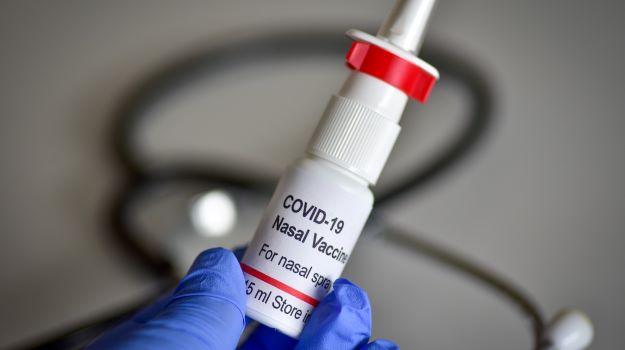Syringe Fear Keeping You Away From COVID Vaccine? Nasal Drops Coming Soon

"We don't need syringes, we'll vaccinate with pills," said Sean Tucker, chief scientific officer at San Francisco Biotech Company Vaxart. These remarks are of some interest at a time when the vaccine process, which is considered the epitome of war on corona, is gaining momentum around the world.
So far, we know that the vaccine can be given in the form of an injection or the form of pills. However, the Vaxart company's claim that they will bring a nasal spray vaccine, looks like a great gift to people who are struggling with the corona epidemic.
It looks like the policy will make it available as early as next year. By then, the corona vaccine, which was being shipped around the world in the form of injections, could start shipping in the form of tablets and nasal drops, the company said. Ice cubes are said to be used to store the vaccines at low temperatures, but if the vaccines are available in the form of pills and nasal sprays, the use of ice cubes can be avoided.
Speaking to the media on Monday (May 3rd), Sean Tucker, chief scientific officer at San Francisco biotech company Vaxart, said, "Our expectation is one tablet a year." He said his company was working hard to make the pill, which looks like a regular vitamin tablet, a new COVID-19 vaccine.
He said the results were promising now that Phase I trials had been completed, adding that his team planned to conduct Phase II trials this summer as well as trials proving drug effectiveness later this year. The company aims to get approvals for the emergency use of these pills in the US by the end of this year or early next year.
What does the World Health Organization say?
The number of companies trying to develop nasal spray as well as oral corona vaccines is still small. Dozens of companies are working to introduce new injection versions. The World Health Organization estimates that of the 93 vaccine trials currently underway, only two are oral and seven are nasal.
Although only a handful of regulators in various countries have approved it, its impact on the global ability to control the virus that has wreaked havoc on the world economy is enormous.
"Nasal as well as oral vaccines are coming in very good," WHO Chief Scientist Soumya Swaminathan told health officials during an online panel last week coordinated by the UNICEF Innocent Research Center in Florence, Italy. "It makes the vaccination process a lot easier." she said.
The results of a survey conducted by Vaxart were released last week. 23% of people surveyed in the United States said they did not want to be injected with the Covid 19 vaccine. However, one-third of them said they would take the vaccine if a tablet was available.
Based on that, Vaxart estimates that the tablet will increase the number of people in America who are ready to acquire immunity to another 19 million.
In less developed countries, vaccine distribution is more difficult. Vaccination through these tablets is very useful in such a place.
When it comes to India, hospitals are in trouble due to the corona epidemic. Cemeteries cannot withstand the number of deaths. Although India is a major producer as well as exporter of coronavirus vaccines, less than 10% of the total population of 1.4 billion can be vaccinated.
Swaminathan said a well-knit logistics network is needed across India with vaccine hubs in hundreds of local hospitals for vaccine distribution while adding that it was difficult to predict the distribution of vaccine in a country without electricity and infrastructure.
Oral tablets of Covid 19 vaccines, as well as nasal sprays, can solve most of those logistical problems. “You can send this tablet by mail (courier). Your people can be 20 or 30 times more easily immunized,” said Tucker, Vaxart's chief scientist, pointing to his pill. “You can transport it to places where there are no freezers. You do not need a medical person who is qualified to immunize people, he concluded.







